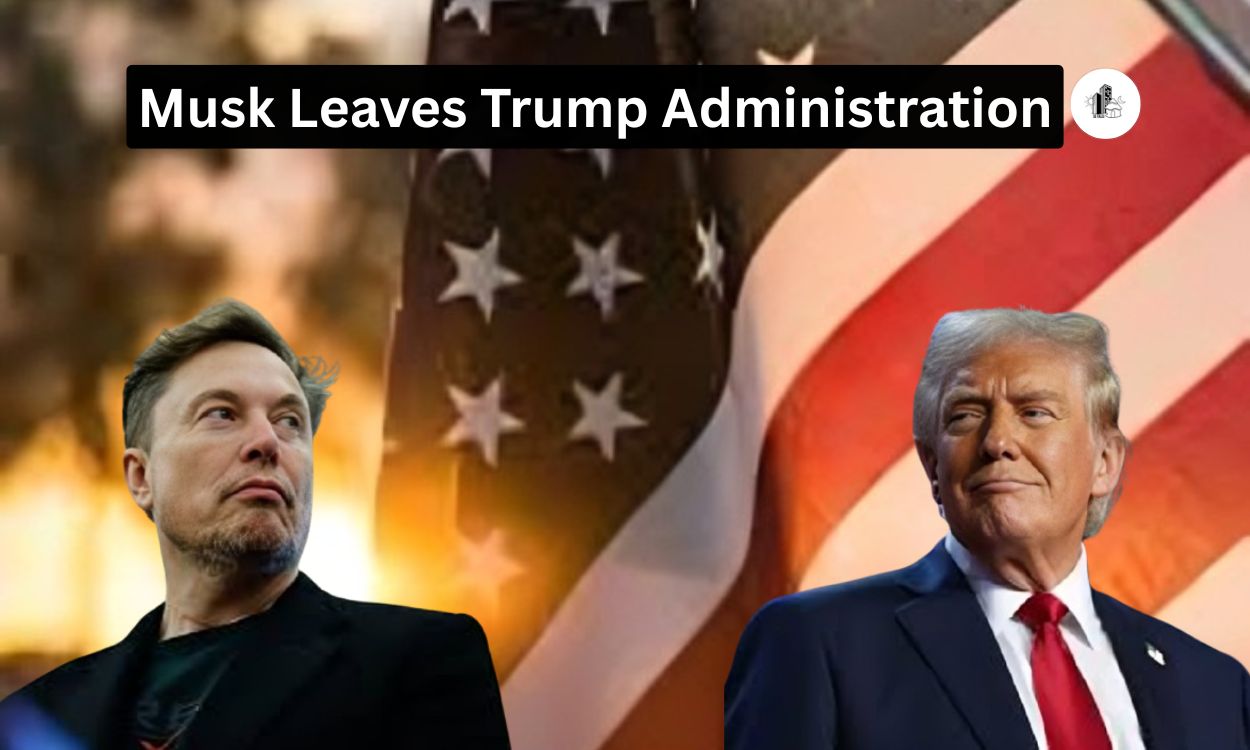Welcome to theustales.com.
Billionaire Elon Musk stepped down as a top adviser to President Donald Trump on Wednesday. He led the Department of Government Efficiency, or DOGE, aiming to slim down the federal government. His exit, shared on his social media platform X, marks the end of a bumpy journey. Musk thanked Trump for the chance to cut wasteful spending. Let’s dive into what happened, why he left, and what it means.
A Bold Mission to Shrink Government
Musk joined the Trump administration as a special government employee after Trump’s January 20, 2025, inauguration. His role allowed him to serve for 130 days, set to end around May 30. He spearheaded DOGE, a team focused on reducing federal bureaucracy. Musk promised big cuts, starting with a $2 trillion goal. Later, he lowered this to $1 trillion, then $150 billion. DOGE claimed $175 billion in savings, though some question this number.
The effort wasn’t smooth. DOGE cut 260,000 federal jobs, about 12% of the 2.3 million civilian workforce. These cuts came through firings, buyouts, and early retirements. However, mistakes happened. Some workers, like those in the US nuclear program, were wrongly let go. Federal judges stepped in, blocking some firings and reinstating employees. These setbacks sparked lawsuits and criticism.
You may Also Like:
Clashes and Challenges in Washington
Musk found Washington tough. He called the federal bureaucracy “much worse” than he expected. He clashed with senior officials, including Secretary of State Marco Rubio, Transportation Secretary Sean Duffy, and Treasury Secretary Scott Bessent. Musk even insulted Trump’s trade adviser Peter Navarro, calling him “dumber than a sack of bricks.” Navarro shrugged it off, saying he’d heard worse.
Moreover, Musk’s aggressive tactics frustrated some cabinet members. They pushed back, especially after Trump clarified that department secretaries, not Musk, controlled staffing. Resistance grew as DOGE’s cuts caused problems, like purchasing bottlenecks and a loss of scientific talent. Musk admitted the uphill battle, saying improving things in D.C. was “tough.”
A Public Split Over Trump’s Big Bill
On Tuesday, Musk publicly criticized Trump’s key legislative plan, a mix of tax cuts and immigration enforcement. Trump called it his “big, beautiful bill,” but Musk disagreed. In a CBS interview, he called it a “massive spending bill” that worsened the federal deficit. He said it undermined DOGE’s work. “A bill can be big or beautiful, but not both,” Musk quipped.
This criticism upset senior White House aides, including Deputy Chief of Staff Stephen Miller. The White House quickly called Republican senators to reaffirm Trump’s support for the bill. Musk’s comments, aired just before his exit, stirred tension. He didn’t discuss his departure with Trump directly; senior staff handled it. His “off-boarding” began Wednesday night, a White House official confirmed.
Trump and Congress Respond
Trump, speaking from the Oval Office on Wednesday, defended his bill. He admitted he wasn’t thrilled with all parts but loved others. “We’ll see what happens,” he said, hinting at possible changes. The bill passed the House, but the Senate is debating it. House Speaker Mike Johnson urged senators to keep changes minimal, citing a “delicate balance.” The House will vote again if the Senate alters the bill.
Some Republicans, like Wisconsin Senator Ron Johnson, shared Musk’s concerns. Johnson said he was “pretty confident” opposition would slow the bill until spending cuts were prioritized. Utah Senator Mike Lee called for a “more aggressive” Senate version. However, only two House Republicans, Warren Davidson and Thomas Massie, voted against the bill last week. Davidson hoped the Senate would “fix” it.
DOGE’s Legacy and Musk’s Next Steps
Despite Musk’s exit, the Trump administration insists DOGE’s mission will continue. Cabinet secretaries are now planning how to maintain DOGE’s goals without upsetting Congress. The White House is sending rescissions to cancel $1.1 billion from public broadcasting and $8.3 billion in foreign aid. House Speaker Johnson praised Musk’s work and vowed to act on DOGE’s findings.
Meanwhile, Musk is shifting focus to his businesses, Tesla and SpaceX. Tesla faced a rough patch, with a 13% sales drop in early 2025 and a stock price dip of up to 45%. Protests and vandalism targeting Tesla grew, with US Attorney General Pam Bondi calling some acts “domestic terrorism.” Musk told investors he’d prioritize Tesla, cutting back on DOGE work. He also plans to reduce political spending after investing nearly $300 million in Trump’s campaign.
What People Are Saying
Social media buzzed after Musk’s announcement. Many wished him well, but opinions varied. One user praised Musk, saying his $40 billion Twitter purchase saved free speech. They suggested he deserves the Presidential Medal of Freedom. Others were critical. “DOGE has been a failed endeavor,” one user wrote. Another claimed Musk’s actions hurt his brand.
Grok, an AI chatbot from Musk’s xAI, summarized DOGE’s work. It noted $160 billion in savings, including $255 million from canceled contracts and modernized IT systems. Yet, it highlighted criticism, like $135 billion in lost productivity and legal challenges. Public opinion remains split, with 54% viewing Musk unfavorably.
A Turbulent Chapter Ends
Musk’s time in government was a whirlwind. He arrived with bold promises, wielding a red chainsaw at a February conference to symbolize cutting bureaucracy. Trump called him a “great American” and even turned the White House driveway into a Tesla showroom. However, Musk’s outsider approach clashed with Washington’s reality. His departure, though planned, came abruptly after his public critique of Trump’s bill.
As Musk returns to his companies, DOGE’s future lies with others. His efforts sparked change but also chaos. Whether DOGE becomes “a way of life” in government, as Musk hopes, remains to be seen. For now, his Washington adventure is over, leaving a trail of debates and divided opinions.

